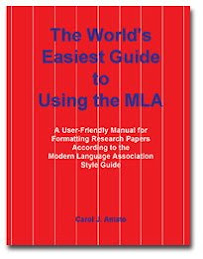A Five-part Series by Carol J. Amato
Congratulations! You’ve made the critical decision to complete your degree. Perhaps you’ve hit a ceiling at work and need a degree to go further or you want it just for your own personal benefit. Whether you have taken college classes in the past or are new to college life, you may be hesitant to enroll because you think you will feel out of place among all those 18-22-year-olds.
Don’t worry. According to the Commission on the Future of Higher Education’s 2006 report, those over 22 make up 58 percent of today’s college population. In fact, 40 percent are 25 and older. These students are called “adult learners.” Most of them work and have spouses and/or children. You will fit right in.
To ensure that your return to college is successful, keep these points in mind:
1. Have a clear idea of your major. Do you want to remain in the same career or change careers? Knowing your direction will help you choose the right school and relevant classes or program. College is expensive. Don’t waste time and money on classes that won’t further your career goals.
2. Make sure the college/university is accredited. Many companies/grad schools do not recognize undergraduate degrees from unaccredited schools. “Accreditation” means that the school’s programs have been screened and verified by the one of the arms of the Higher Learning Commission (HLC).
Accreditation doesn’t ensure that a school isn’t more interested in taking your money than giving you a good education, however. Talk to your Human Resources department to see what he/she know about the school(s). If possible, talk to other students who have gone there. Also talk to experts in your line of work to get their advice on what school you should attend.
3. Consider an accelerated program. You can take one class at a time and still finish in a reasonably short period. A traditional semester is 15-18 weeks. A semester/term in an accelerated program may be 5-8 weeks. In other words, in that 5-8 weeks, you’ll read the same number of chapters and complete the same amount of homework—or more—as the student in the 18-week semester. The upside is that you’ll get 3 units under your belt in a much shorter amount of time.
4. Weigh the options between onground and online classes. If you travel frequently with your job, have childcare issues, or live too far from a ground campus to attend classes conveniently, consider an online program. You can attend class from the comfort of your living room via your computer, no matter where you are.
Stay tuned for Part 2....
Welcome!
Writing well is critical not only to your college career but to your future in your professional career. If you are a lower-division student who wants to do the best job possible on your class papers without tearing your hair out, you've come to the right place. This blog will answer your questions and show you user-friendly ways to produce writing that will impress your professors.
Subscribe to:
Post Comments (Atom)



These are critical points to consider when returning to college. I learned one other lesson by going to graduate school after many life experiences: Don't disregard a class or course of study that scares you or one that calls to you for reasons you can't explain. Many a career has emerged by trying something new.
ReplyDeleteThese are very helpful bits of information. When I returned for my doctorate I was terrified and unsure if I could make it. Someting like this would have helped tremendously.
ReplyDelete